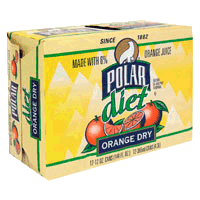Benzene: The Health Dangers of this Chemical Used in Juices, Soft Drinks & Much More
by www.SixWise.com
Benzene, a cancer-causing chemical found in gasoline, smog
and cigarette smoke, can form in soft drinks that contain
ascorbic acid (vitamin C) and the preservative sodium benzoate.
|

The FDA maintains that benzene in soda is not a concern
at this time, yet they aren't releasing the results
of their study on benzene levels in beverages to the
public.
|
U.S. officials and members of the beverage industry have known
about this for some 15 years, and drink makers were supposed
to reformulate their products to prevent the problem over a
decade ago.
However, recent tests have uncovered that some beverages
still contain high levels of benzene, particularly when exposed
to high heat, raising consumer concerns and prompting the
filing of a class-action lawsuit.
Benzene Levels Higher Than Allowed in Drinking Water
The Environmental Protection Agency (EPA) has set a level
of 5 parts per billion (ppb) as the safe upper limit of benzene
in drinking water. When concerns over a private study that
found some drinks may contain benzene were raised in November
2005, the U.S. Food and Drug Administration (FDA) began testing
a small sampling of beverages.
While they have refused to make their results public, Laura
Tarantino, the FDA's director of food additive safety, said
that only a "very, very few samples" had slightly
elevated levels of benzene.
However, the Environmental Working Group (EWG) believes the
FDA's refusal to make their test results public is a cause
for alarm in itself.
"We simply asked for them to disclose the results of
their testing. If there's nothing to hide, why won't they
show us numbers? It might be a small percentage, but there
is some percentage of drinks that have very elevated levels
of benzene," said Richard Wiles, EWG's senior vice president.
Tarantino disagrees. "To release all the data now could
be confusing," she said. "It's not only not good
for companies; it's not particularly good for consumers. It
doesn't give them any useful information. One of the misperceptions
is that anytime you see ascorbic acid and benzoate, you're
going to automatically have high levels of benzene, and that
just isn't so."
Still, between 1995 and 2001, as part of the FDA's Total
Diet Study, the FDA tested 24 samples of diet soda for benzene.
It was found that:
-
19 (79 percent) were contaminated with benzene above
5 parts per billion.
-
The average benzene level was 19 ppb.
-
The maximum benzene detection was 55 ppb, 11 times the
tap water limit.
Further, the issue extends beyond soft drinks. The Total
Diet Study also found that one powdered fruit drink sample
had benzene levels of 95 ppb, and orange and grapefruit juice
from concentrate also contained benzene levels in excess of
the allowed 5 ppb.
"These results confirm our suspicions that there are
highly elevated benzene levels in some very popular drinks,"
Wiles said.
Class-Action Lawsuits Filed
|

Polar Beverages' Diet Orange Dry was found via independent
tests to contain 9.1 ppb of benzene, according to plaintiffs
involved in a class-action lawsuit.
|
In April 2006, class-action lawsuits were filed in Massachusetts
and Florida that claim two beverages contain benzene levels
that are above the EPA's safe limit for drinking water and
seek to ban the sale of the drinks in those two states.
The suits involve two beverage makers, Polar Beverages and
In Zone Brands. According to plaintiffs' independent tests:
-
Polar Beverages' Diet Orange Dry contained 9.1 ppb of
benzene.
-
BellyWashers 2/3 Less Sugar, made by In Zone Brands,
contained 69 ppb of benzene.
The American Beverage Association (ABA), along with both
beverage manufacturers named in the suits, maintain that their
drinks are safe.
"What was reported in the paper was considerably higher
than anything In Zone has seen in their tests," says
In Zone Brands spokesman Bob Hope, an In Zone Brands spokesman.
Polar Beverages said that its own tests found no benzene in
Diet Orange Dry.
The ABA also mentioned that people get "more benzene
from breathing the air around them everyday." Did we
mention that the chairman of the ABA, Ralph Crowley, Jr.,
also happens to be the president and CEO of Polar Beverages?
What You Can do if You're Concerned About Benzene in Soda
and Other Drinks
The Environmental Working Group is collecting signatures
for an online petition to the FDA. Their purpose? To tell
the FDA to get benzene out of soft drinks. If you'd like more
information you can view
the petition here.
Meanwhile, although, according to Judy Kidwell, an FDA consumer
safety officer, "the FDA does not believe benzene poses
a concern," you can play it safe by cutting down on your
(and your family's) soft drink intake or eliminating sodas
altogether.
Recommended Reading
The
Top Environmental Contaminants in Your Food (& What You
Can do to Avoid Them)
158,00
Dying Yearly From This One Drug and Almost No One Knows It
-- Till Now
Sources
Environmental
Working Group Letter to the FDA
Los
Angeles Times April 24, 2006
CNN
March 29, 2006
Food
Quality News April 12, 2006
Chemical
and Engineering News April 24, 2006